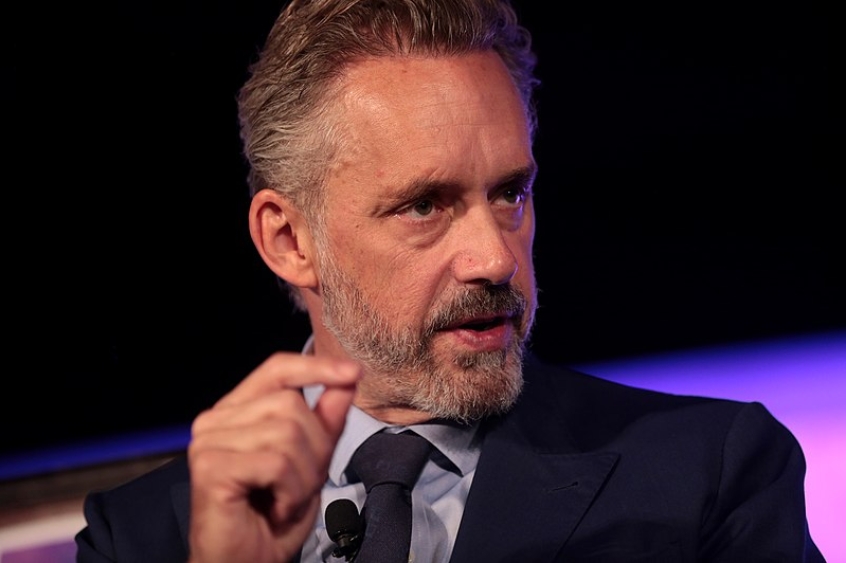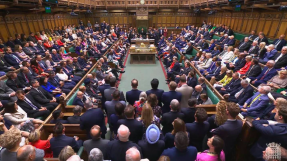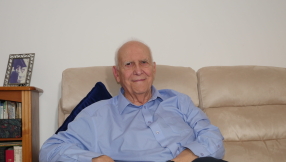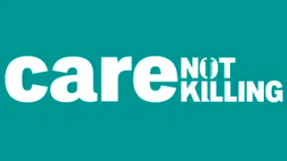
Some years ago a pillar of the Jewish community was discussing the role of synagogues. 'Whatever their role', he said, 'one thing is for sure, you certainly don't go to synagogue to get a religious experience.'
I was shocked. But lately, I have come to the conclusion that other institutions may also be drifting from the role they were originally created for – at least in this country.
Take the recent Jordan Peterson fiasco with Cambridge University as an example. Back in Canada and the USA, Jordan teaches about the biblical books of Genesis and Exodus from the psychological perspective. He attracts massive audiences and was planning to do another lecture series on Exodus soon, hence the invitation extended to him (not that he requested, as some have reported) to conduct research into the book in Cambridge's Divinity School. All was going well before the offer was suddenly and very publicly rescinded. Why?
Because some people objected to him on the grounds of some of his views. Cambridge University isn't the only one to have got cold feet over Peterson. New Zealand's largest bookseller banned his bestselling book, '12 Rules for Life', in the wake of the Christchurch mosque shootings, all the while retaining Hitler's 'Mein Kampf'. The bookseller later returned him to their shelves following outcry from Peterson's supporters.
Cambridge prides itself on being the best educational institution in the world but this unusual episode with Peterson gives rise to some questions about double standards.
Last year, in the same Cambridge divinity faculty that excluded Peterson, American novelist Marilynne Robinson was invited to give the prestigious Hulsean Lectures on Genesis and Exodus from a literary and theological point of view.
Neither she nor Peterson knows Hebrew particularly well, but surely this should be a prerequisite for even the most basic approach to the Bible. How much more so then for someone called in as an authority on a particular subject to address students and academics at an institution which prides itself on being 'the best'.
Jordan's lack of fluency in Hebrew is less objectionable because he was seeking a visiting fellowship to learn more about Exodus, he wasn't coming to Cambridge to speak or give a lecture to students. But it becomes more important when we consider the qualifications of Robinson to pontificate to students and academics about such an important book in the Bible.
Last year, former Chief Rabbi Jonathan Sacks interviewed Peterson for a Radio 4 programme, 'Morality in the 21st Century', which I reviewed for this website - that programme has now been short-listed for an award. If Sacks can tolerate hearing the views of Peterson, it's a mystery why Cambridge University cannot manage it. Why should Robinson have been so honoured by the university to give a distinguished lecture and yet Peterson be dismissed for a simple request to do some research?
To some, the Hebrew Bible is just a book of mythology, of outdated laws and practices, racist land grabs, and ghastly sexism. But to observant Jews, it is our holy scripture, written in the holy language of G-d, and we mess with it or ignore it at our peril. By 'we' I mean people of faith and anyone wanting to engage with it seriously, including academics, scholars and novelists. At the level of international scholarship, simply knowing the Greek or Latin versions of the Old Testament is not good enough.
Incidentally, as a former guest of the divinity faculty myself, I've outlined my concerns in a letter to the Vice Chancellor, which I've yet to receive any reply to.
But all of this brings to mind a rather different story from my own life. Around the time I received my PhD in Jewish, Christian and Muslim approaches to Holy Scripture (i.e. the Hebrew Bible), I was introduced to visiting retired social anthropologist and icon, Mary Douglas, who happened to be the guest at a symposium in her honour that was based on the book of Leviticus.
To my complete surprise, she asked me to teach her Hebrew and to work collaboratively with her on her further research into the book of Leviticus, despite already being so famous for her scholarly work on this subject. She was well into her seventies at the time but she grasped the importance of understanding the language and all of its nuances, and was prepared to put time into learning it.
The same cannot be said for many others, even those in positions of authority, and the result of that is to have Bible passages misinterpreted or completely misrepresented.
Like we saw with dear old Boris Johnson, who has also been throwing his weight around lately, quoting the book of Exodus in a way that really demonstrated his ignorance of it. Last week, speaking on Brexit, he told his colleagues to "channel the spirit of Moses and Aaron in Exodus and say to the pharaohs of Brussels, 'let my people go.'"
While many would agree with him on both counts, especially in the run-up to Pesach and the story of the Exodus from Egypt coming up soon, here's the rub: does Boris know Hebrew at all? Because there are two parts to that famous phrase in Exodus 7:26 of the Hebrew Bible (Exodus 9:1 in the Christian Bible).
God actually instructs Moses to tell Pharoah: "Thus says the Lord, let My people go, that they may serve Me." Not you, Boris, but Him upstairs!
And it is not just the release from bondage that is imperative, but the consequences of that release. Boris would do well to remember that politicians are not to work for their own glory but for something which is greater than them, which we call G-d.
Which brings me to my final point: influential people should be applauded for seeking to learn more about G-d's word in an academic environment. If Cambridge won't have Peterson, he should consider researching Exodus in the greatest Bible centre in the world, i.e. the State of Israel. There he will have his pick of countless religious colleges and a number of great universities, such as Bar Ilan, Beer Sheva, Haifa, the Hebrew University of Jerusalem and Tel Aviv.
All over Israel there are currently innumerable study sessions on Exodus from dawn till dusk. And right now is the best time to go, at the build-up to the reenactment of the biblical Exodus from Egypt, culminating in the festival of Pesach which takes place in a couple of weeks.
And most of all, you will find in Israel the joyful argument which is missing elsewhere. You will find people who, while admiring you, will not be afraid to give as good as they get – because that is the nature of Judaism which has tragically been stymied in diaspora.
But what do I know. Maybe I should stick to knowing my place and carry on with cleaning for Pesach. As the country implodes into chaos and places of worship, universities and political institutions seem no longer fit for purpose, perhaps Cambridge University would benefit from a little house cleaning of its own.
Dr Irene Lancaster is a Jewish academic, author and translator who has established university courses on Jewish history, Jewish studies and the Hebrew Bible.













